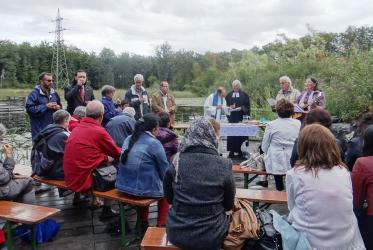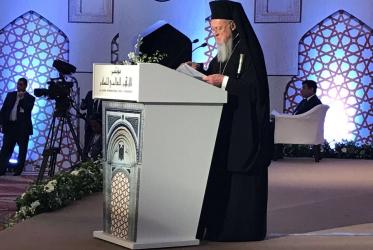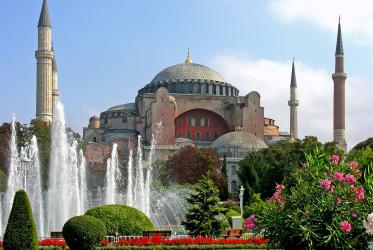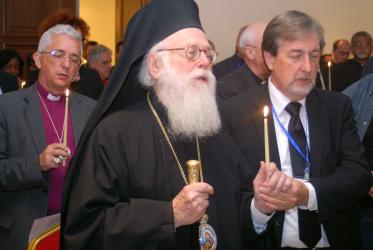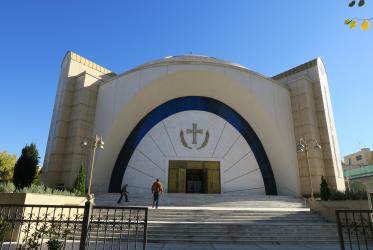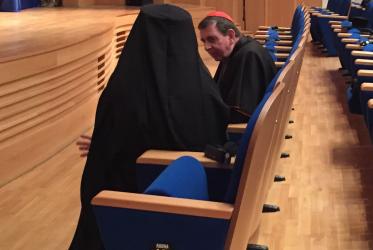Displaying 1 - 20 of 27
WCC well-represented in Religions for Peace leadership
07 October 2019
WCC general secretary mourns lost lives, calls for end to violence
11 December 2016
Facilitating peace with passion
26 July 2016
WCC/UN conference calls for coordinated action on refugee crisis
20 January 2016
Rebuilding a smashed church in Albania
23 December 2015
Orthodox church in Albania resurrected
23 December 2015
In Albania, churches’ share of health care has grown in new era
23 December 2015
Global Christian leaders concerned for persecuted Christians
09 November 2015
Cardinal Kurt Koch tells WCC News: We have to deepen our solidarity
05 November 2015




